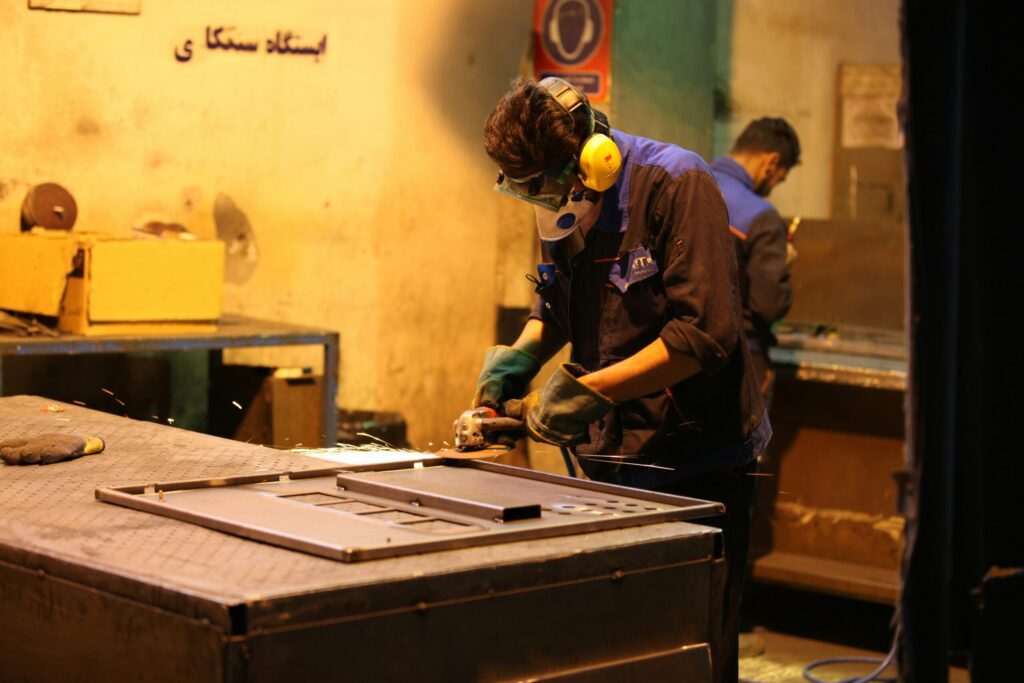 Preparing for a job interview when changing careers may be both thrilling and scary. Particularly when it comes to being ready for a job interview in a new industry. Employers in the USA look for traits that are essential when changing careers, such as adaptability, transferable abilities, and a desire to learn. Understanding your new industry, emphasizing relevant experiences, and demonstrating confidence in your capacity to advance are all important aspects of interview preparation, which go beyond simply practicing responses. The proper preparation can help you create a good impression and demonstrate that you’re prepared for a new chapter in your career, whether you’re switching from teaching to technology or from retail to marketing.
Preparing for a job interview when changing careers may be both thrilling and scary. Particularly when it comes to being ready for a job interview in a new industry. Employers in the USA look for traits that are essential when changing careers, such as adaptability, transferable abilities, and a desire to learn. Understanding your new industry, emphasizing relevant experiences, and demonstrating confidence in your capacity to advance are all important aspects of interview preparation, which go beyond simply practicing responses. The proper preparation can help you create a good impression and demonstrate that you’re prepared for a new chapter in your career, whether you’re switching from teaching to technology or from retail to marketing.
A lot of executives and professionals who are changing careers want to know how to prepare for an interview. Regardless of your career stage, it can be frightening to change careers after putting a lot of time and effort into a certain industry, position, or business. Many professionals, even if they are dissatisfied or have outgrown their function, feel compelled to continue on the same career path. To stay where they are and avoid the unknown, it can be frightening enough to start over from the beginning.
Read Also: Workers’ Compensation Attorneys in the USA
How do I Prepare for a Job Interview When Changing Careers?
 Many people find it upsetting to change careers. When it comes to interviews, most people are afraid to discuss previous employment or the reasons they desire to change careers. However, being aware of what hiring managers want to hear can help calm anxiety. It usually makes a big impression to share the genuine reasons behind choosing a different route and the lessons you learnt along the way. When changing careers, this article offers tips on how to ace interviews. Read on for helpful tips on presenting your best self when changing careers. It might lead to something novel and fascinating if approached properly.
Many people find it upsetting to change careers. When it comes to interviews, most people are afraid to discuss previous employment or the reasons they desire to change careers. However, being aware of what hiring managers want to hear can help calm anxiety. It usually makes a big impression to share the genuine reasons behind choosing a different route and the lessons you learnt along the way. When changing careers, this article offers tips on how to ace interviews. Read on for helpful tips on presenting your best self when changing careers. It might lead to something novel and fascinating if approached properly.
-
Getting to Know What Employers Are Thinking
Considering the questions the hiring manager might ask is helpful while getting ready for a career change interview. Why you are interested in their open position is something that employers want to know. To see how your talents align, they frequently enquire about your previous employment. For instance, if your prior roles required you to assist clients, you can discuss how your ability to communicate effectively has benefited you. Giving them instances of your actual work from previous positions helps them understand your work and methods. They may also want to hear about your personal life when you’re not working. Assure them that even though the everyday tasks are different from previously, your skills are still applicable. Addressing any issues head-on demonstrates your qualifications. Being prepared for the meeting gives the employer peace of mind and demonstrates your suitability for the position.
Read Also: Jobs that make $3000 a month without a Degree
-
Demonstrate Competencies That Are Useful in a Variety of Jobs
Certain skills, such as problem-solving, communication, and time management, are transferable across various job roles. Provide instances of your prior application of these abilities during interviews. Demonstrating how you solve problems is a positive thing. You might discuss instances where you needed innovative solutions to demonstrate your flexibility and problem-solving skills. Since most jobs require a lot of talking, communication skills are also quite crucial. By outlining these skills, you make it easier for the hiring manager to realize that you possess the necessary abilities and how they will benefit the new position. Making a clear connection between your past and the position you want is crucial.
-
Preparing for Frequently Asked Interview Questions
You can feel more comfortable during the interview by preparing well-thought-out responses. Employers frequently probe to find out your skills and reasons for wanting a different career. Why do you want to change careers? And what can you do here that you did before? are some common inquiries. (1). When explaining why you want the move, you should be truthful. For example, you may say that you wish to progress more or that you truly enjoy a different kind of employment. Additionally, relate your abilities to how they will benefit the new position, such as useful skills. If they ask you how you plan to handle future obstacles, be prepared as well. You can demonstrate your readiness for the new function by demonstrating that you can constructively solve difficulties. Since teams are prevalent, you should also share your experiences working with others.
-
Effectively Communicating Your Career Story
It’s critical to relate your previous employment to your future goals. Consider how you may communicate your journey while demonstrating your enthusiasm for the new kind of employment. You may discuss how a previous activity sparked your interest in a different field, for instance. Additionally, you might demonstrate how your prior experiences have influenced your desire for this new position. Genuinely excited employees are preferred by employers. Additionally, sharing distinctive aspects of your background may help you stick out more. In your interview, you stand a better chance of making an impression if you tell a compelling story.
It’s a good idea to take some time to contemplate before a career-change interview. You can feel more confident going into the meeting if you have given great thought to your reasons and what makes you special. Think about the route that brought you to choose a different job path. You can talk about your reasoning with confidence if you know why. Additionally, you should consider how your diverse experiences have molded you into a candidate who has something unique to give.
-
Practice Makes You Better
It might be quite beneficial to practice responses to common job interview questions before the actual interview. To improve your responses and feel more comfortable, conduct practice interviews with loved ones. The real interview won’t be as frightening if you practice your responses and become familiar with the kinds of questions that will be asked. Practice interviews are a good idea since speaking with people you know can help you feel less nervous and provide feedback. Since many websites offer example questions and interview advice, online resources can also be helpful. Making a video of yourself can help you identify areas for improvement. If you want to switch careers and land the position you desire, this preparation is crucial. The more you practice, the more confident you’ll feel at the interview.
Read Also: Severance Pay in the USA- Everything You Need to Know
How To Answer Job Interview Questions When Changing Careers
-
 Begin With Why
Begin With Why
The interviewer is probably curious about your objectives, which is why they want to know why you want to change careers. Keep in mind that hiring managers are searching for more than simply qualified applicants. They are looking for someone ready to be with them for a long time. Being ready for this question in advance is one of the most crucial things you can do. Even though you could have good arguments to offer, you should state them aloud before you face the interviewer. But by changing careers or fields, you’re maximizing your abilities and expertise and applying them to more demanding, rewarding, or profitable jobs. Answering this question will help you show that you have studied the sector thoroughly and that you understand how their goals coincide with your own.
-
Reframe Unfavorable Events as Opportunities
Using many of the same strategies you use for any other interview is necessary while preparing for a career change interview. When discussing your reasons for quitting your current job, emphasize the positive aspects. Whether or not the information is accurate, criticizing your present or former employers will only reflect poorly on you, even if you are leaving because of weak leadership or poor management.
Change your attention to what you want them to know instead. What are your passions, and what does this industry offer? In what ways does it provide you with more stability or growth? Prepare in advance to present your current career field and its drawbacks in a positive light during the interview. For instance: “I’m proud of the great work I’ve done in my current role, but I know I’ll have an impact because I love what your organization has done for this industry.’’ Although the response above acknowledges the outstanding work you have done, it links your success to your enthusiasm about moving your resources to their business rather than to a drawback of your current setup, like a lack of area for expansion.
-
Have confidence in yourself
You must first believe that you are the best candidate for the position before you can persuade someone else of this. You’re not beginning from scratch. Even in a new field, you won’t be beginning from scratch if you’re a manager or leader. You’ve dedicated years to developing your present career and accumulating valuable experience that you can use in other positions. Examine the areas where your intended career path and your current one overlap. You may be surprised to learn how many similarities there are.
Jot down every ability needed for your current position and evaluate how well it aligns with the requirements of the future position. Utilize some of your transferable talents and relevant data to demonstrate your prior effectiveness and connect it to how you might produce comparable outcomes. Be detailed and set an example with your results and achievements. Make sure you are demonstrating to an employer why you are a useful resource. Helping the hiring manager understand your potential is the best method to prepare for an interview when you’re changing careers.
-
Bring in your best to the Interview
During your interview preparation, consider how you can arrive as prepared as possible. Although it’s crucial to look the part, showcasing your professionalism, abilities, and readiness is more crucial. Now is a fantastic time to present tangible evidence of your achievements. A few examples of your prior work could be brought in, including proposals, budgets, marketing plans, KPIs, evaluations, and yearly reports. To demonstrate that you have already undertaken the research to gain new abilities, write a paper detailing the precise processes, courses, education, coaching, and training you have done (or are now undergoing) to demonstrate that you have been preparing yourself for the new knowledge and skills needed in this role. To the hiring manager and department heads, this demonstrates extraordinary initiative and dedication.
-
Presenting Yourself as the Perfect Candidate
Even if You Don’t Meet Certain Criteria, it is uncommon and typically not necessary to fulfill every job criterion or qualification listed in a job posting to proceed. Usually, job descriptions are wish lists. Many times, even applicants who remain in the same industry or organization don’t fulfill every need listed in a job posting. How can you use your knowledge and transferable talents to your advantage in an interview? Be ready. List the requirements listed in the job posting that you don’t meet.
Regardless of whether you fulfill all the qualifications, consider how you might apply your prior experience, technological aptitude, talents, and interests to the new position. You should be ready to respond to questions about the qualifications listed by the interviewer in a way that resolves any objections and advances the discussion by discussing how your adaptability and transferable skills will compensate for any gaps in particular job posting requirements.
Read Also: Good-Paying Jobs in the USA
How To Impress an Interviewer When Changing Careers in the USA
-
Dress for success
Dressing appropriately while entering a new field demonstrates your respect for the company’s culture and your seriousness about the opportunity. Find out if the company has a formal, business casual, or creative dress code and wear clothing that fits. Because attention to detail can make you stand out, make sure your clothing is clean, well-fitting, and polished. You convey competence, preparedness, and excitement for your new job path by dressing appropriately. Present yourself professionally and choose clothing that makes you feel at ease and confident.
-
Dummy Run
To gauge how long it will take to prevent being late, drive or take the bus to your interview beforehand. Additionally, look for areas with high traffic that could cause delays. It enables you to easily answer any inquiries, practice discussing your job transition, and emphasize your transferable talents. You can record yourself, practice in front of a mirror, or have a friend or mentor pose as the interviewer. During the actual interview, this preparation makes you sound more relaxed and attentive. You may demonstrate your commitment, readiness, and ability to make a lasting impression in your new field by taking the time to conduct a mock run.
-
Do some research on the company and the job interviewer
Visit their website to find out more about their work, history, and current position. Who is employed there? Have they received any honors? Would you be able to discuss anything they recently won during the interview? Examine your interviewer’s LinkedIn profile. It’s a smart move because you can see how long they’ve been employed there and whether they’ve advanced in the organization. Additionally, you may examine their previous workplace and educational institution. Maybe you have a similar talking point since you attended the same school, college, or university. Not to be overlooked is the possibility that the interviewer will ask, “Tell me what you know about us.”
Read Also: Highest Paying Jobs Without a Degree in the USA
-
Continue reading the job specification
Verify that you comprehend the role’s responsibilities and expectations in their entirety. The interviewer’s question, “What do you know about the role?” is a dead giveaway that you won’t win the job if you haven’t read it! Reading the job description also helps you prepare for potential interview questions. For instance, if managing a customer service team is a part of your job, the interviewer can question, “Tell me about a time when you’ve managed a team to reach a deadline.”
-
Arrive early
Try to get there ten to fifteen minutes ahead of time; this will allow you to demonstrate punctuality without being inconvenient. This tiny gesture of professionalism can help you make a good first impression as you embark on your new job path by setting a positive tone for the entire interview. Everyone finds it strange if the interview starts early, and the final interviewee might leave.
-
Practice, practice, practice:
To improve your delivery in a job interview, you can videotape yourself, practice with a friend, or even use online mock interviews. You’ll sound more confident and natural the more you practice. In addition to preventing awkward pauses, preparation demonstrates to the interviewer your seriousness, drive, and readiness for success in your new employment. Find a friend and practice with them a few times if you know that practice makes perfect.
-
Consider your body language
Instead of coming across as gloomy, depressing, or negative, you want to be upbeat, sunny, and cheerful. Speak slowly and steadily. Let the interviewer know if you’re nervous and your pace quickens. They will comprehend. Remind yourself to stand upright, with your shoulders back, and avoid crossing your arms!
-
Ask for the job if you want it
The company will anticipate a closure, especially for sales tasks. If you truly want the job, we encourage you to ask for it at the end of the interview. Additionally, you might express your strong interest in the position and request input from the client regarding your suitability for the position and the company. This gives you the chance to address any worries they may have.
Read Also: EB-5 Visa in the USA
Conclusion
It takes careful preparation, self-awareness, and confidence to be ready for a job interview when changing careers in the United States. Doing a study in your new field, knowing what employers want, and emphasizing your transferable talents from prior positions are all crucial. Customize your interview responses and CV to highlight how your prior experiences make you a special candidate for the job. Practice responding to frequently asked interview questions, and don’t be afraid to share why you decided to change careers; this demonstrates your drive and flexibility. You can make a great impression and open the door to a positive relationship if you are prepared and have a positive outlook.
 Begin With Why
Begin With Why




